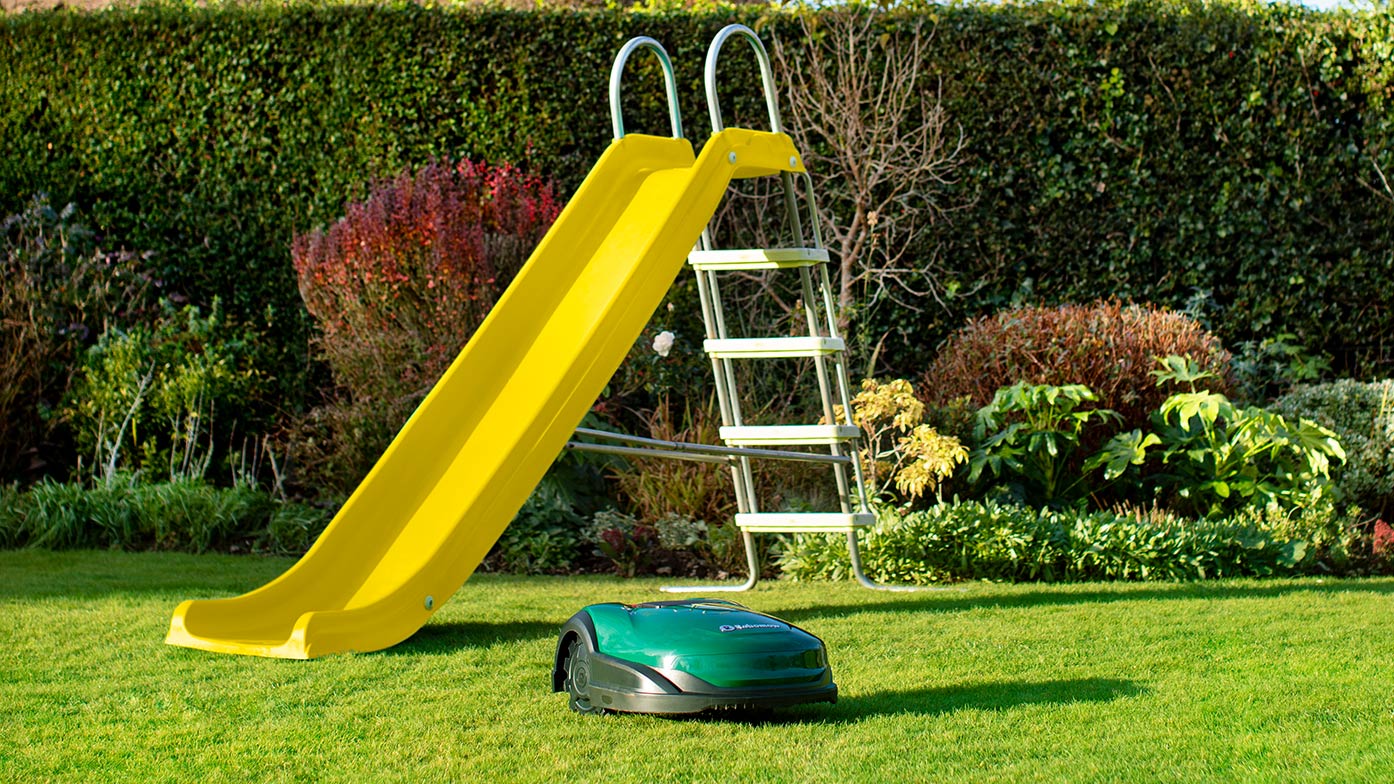How loud is a robotic mower?
23.05.2021
Robotic mowers are often the cause of quarrels with neighbors who can be perturbed by the constant sound. Garden owners themselves report time and again that their robotic mower is only used when no one is present due to its sound level. In order to enable an assessment even before the purchase, manufacturers therefore specify the dB that the robot gives off during normal operation. But what does 60 dB or 75 dB actually mean?
Not every robotic mower is equally loud
Overall, it is true to say that robotic mowers are substantially quieter than electric or gasoline mowers. However, there are big differences between individual models. Factors that affect the volume of a robotic mower include:
- engine (the greater the power, the louder most units are)
- compliance with regular maintenance intervals
- cleaning or soiling
- sharpness of the blades
- weight (the heavier, the more powerful the motor must be)
- number of blades (usually louder with two shafts)
What does the dB figure mean?
For almost all devices, the volume is indicated in dB. The decibel represents the scale of a metric unit and is a logarithmic scale. This means that the perceived loudness results from an increase of 10 dB - rather than doubling the dB until the volume feels twice as loud. To better explain, a robotic mower with a volume of 70 dB seems much louder than one with 60 dB.
Examples of volume
It is not always easy to imagine how loud a device with a specified dB is. Therefore, the following table gives some examples:
| Sound level dB | Sound level |
| 10 dB | breathing, leaves rustling in the distance |
| 30 dB | whispering, bedroom at night |
| 40 dB | quiet library |
| 50 dB | birds chirping, quiet apartment |
| 60 dB | Entertainment (music, TV) |
| 70 dB | blender, vacuum cleaner |
| 80 dB | drilling machine |
| 90 dB | traffic from 10 meters away, club- 1 meter from a speaker |
| 100 dB | circular saw, jackhammer |
| 140 dB | takeoff of airplane |
The distance is also important
Strictly speaking, the distance from a noise source must also be taken into account when specifying the dB. For reasons of simplification, however, this information is usually omitted.
If you move away from a noise source, the perceived volume decreases by 6 dB every time the distance is doubled. A robotic lawnmower with 60 dB at a distance of 5 meters has a noise level of only 54 dB at a distance of 10 meters.
Legal limits that are related to properties or even the night's rest always applies at the boundary of the property. Therefore, the decisive factor is how loud a noise source appears in the immediate vicinity of the neighbor. After all, a robotic mower in the middle of a 5,000 m² garden will be perceived differently - or not at all - than a robot mowing directly at the fence.
Are robotic mowers allowed to mow at night?
In principle, lawn mowing is prohibited almost everywhere on Sundays and public holidays as well as in the evening between 8 p.m. and 7 a.m. the next morning. Violations can certainly be punishable by severe fines. However, there are special regulations for robotic mowers with a sound emission of less than 60 dB. They may be used until 10 p.m., provided they are marked accordingly on the device. But what about at night?
This question can best be answered - apart from looking at the emission protection laws of the federal states - by asking your neighbor whether he or she feels disturbed. Robotic mowers with an operating noise level of 60 dB or less usually do not cause quarrels in the neighborhood.
Regardless of this, however, the question arises whether it is really necessary to run the robotic mower at night. During this time, nocturnal wild animals such as hedgehogs are out and about, searching for food on the lawn and can suffer serious injuries from the blades. Using convenient mowing times, we recommend programming your device so that the robot works in the morning, for example, when there are no people in the garden.
Reduce the noise of the robotic lawnmower
The largest factor regarding the volume of a device you cannot influence, is simply due to its design. Thus, if the noise increases during operation, it is recommended to take a few measures so that your robotic lawnmower runs quieter again:
- regular cleaning and maintenance
- replace the blades
- use particularly sharp blades
- fix technical problems
In principle, robotic mowers are quieter than any other type of lawn mower. Nevertheless, people may feel disturbed by their operation. To avoid this, it is recommended to purchase a robotic mower with a low dB number.
Products
Buy a Robomow
Robomow owner
About us
Sales & Support
